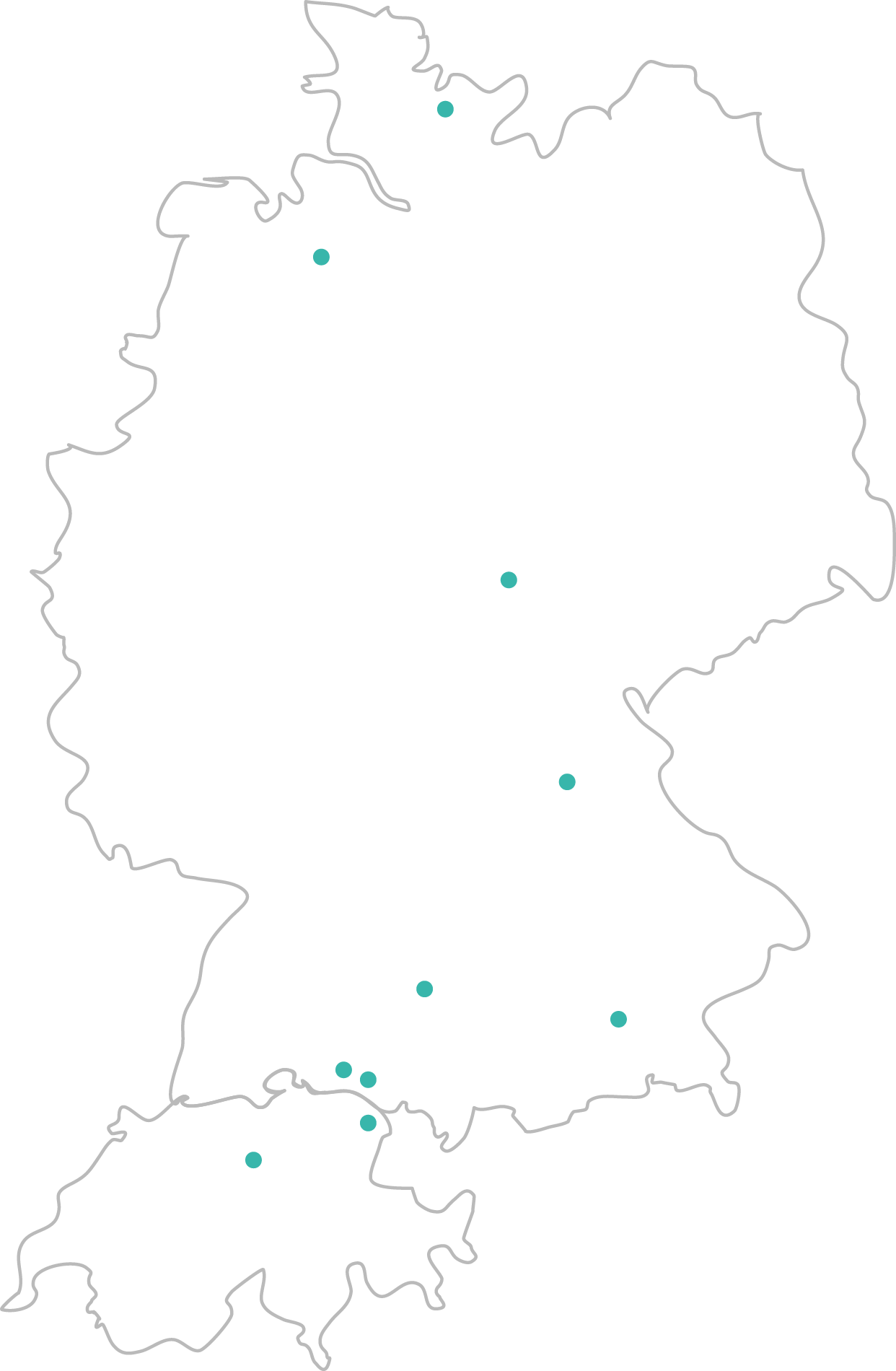Our development team collaborated closely with the customer to create a scalable, cloud-based platform designed for the efficient configuration of industrial plants.
The aim was to replace fragmented, decentralised desktop tools with digital processes, significantly reducing time-to-order. This solution has been under continuous development since 2018 and has become a key part of the customer’s digitalisation strategy.
Initial situation: decentralised tools and manual configuration
Before the project began, the industrial plants were configured manually using various locally installed applications. This fragmented system landscape increased the potential for errors and resulted in longer workflows and higher maintenance costs. To overcome these challenges, a centralised digital solution for optimising processes and improving quality was essential.
Solution: Centralised cloud application with modular architecture
In collaboration with the specialist departments, a centralised cloud application was designed and gradually introduced. Based on a scalable Azure Kubernetes infrastructure, the solution uses modern frameworks such as .NET Core and Angular to seamlessly integrate existing systems via REST APIs, including CAD tools, sales databases and feedback platforms.
The modular architecture ensures high expandability. New features and use cases can be quickly integrated without compromising the stability of the existing system. A consistent data model and structured interfaces make maintenance easier and ensure the system remains fit for purpose in the long term.
Technical implementation with a focus on quality and scalability
The platform was developed using well-established methods, including continuous integration (CI) via Azure DevOps Pipelines, automated testing (with tools such as NUnit, Playwright and Testcontainers) and static code analysis. Team programming, structured code reviews and an agile project setup ensured high-quality code and the efficient onboarding of new team members.
Digital efficiency: Success through cloud application
Significant progress has been made in key areas of plant configuration since the introduction of the cloud solution.
Strategic partnership for digital transformation
Rather than a completed project, this is a long-term partnership in the field of digital transformation. Since the project began, our interdisciplinary team has grown to around 20 people, comprising internal development teams, external partners, and offshore resources. As a strategic partner, our role extends beyond pure software development. We support the company in technical and organisational matters, including architectural decisions, team structures, technical planning, and the continuous optimisation of processes and value streams.
Global cooperation and technical leadership
Right from the start, the project was international, with development teams, specialist departments and stakeholders spread across several continents. In this environment, we took on a leading role, contributing significantly to the design of processes, architectural decisions and development standards, as well as technical implementation. Our collaboration with other external service providers was cooperative and goal-oriented. Furthermore, we trained internal development teams and supported managers and specialists at the customer and its suppliers in modern software development methods, providing technical, procedural and organisational support.
Technical challenges of industrial digitalisation in a project context
Scaling and integrating data in complex systems
A key issue in ongoing operations was processing the large amounts of data generated by the interlocking calculations of existing tools. This complex interdependence required precise infrastructure coordination and effective monitoring. The scaling of the cloud platform was targeted to focus on performance, resource utilisation, and cross-system efficiency.
Integration of existing systems with minimal additional effort
As part of the system integration process, over twenty existing applications had to be integrated, including numerous standalone desktop tools. Rather than having a multitude of individual interfaces, a higher-level architecture based on a central data model was established instead. This structured integration approach minimised implementation effort, contributing significantly to rapid, consistent implementation. Individual external systems were connected via existing interfaces from external service providers.
Outlook: Expertise as the foundation for further digitalisation projects
The expertise we have acquired and the cloud technology we have developed provide a valuable foundation for future projects. Our expanded expertise in developing complex cloud solutions and integrating diverse systems enables us to efficiently and effectively overcome upcoming challenges. This strengthens our position as a strategic partner for innovative industrial software solutions and creates new opportunities for technical development for our customers.



